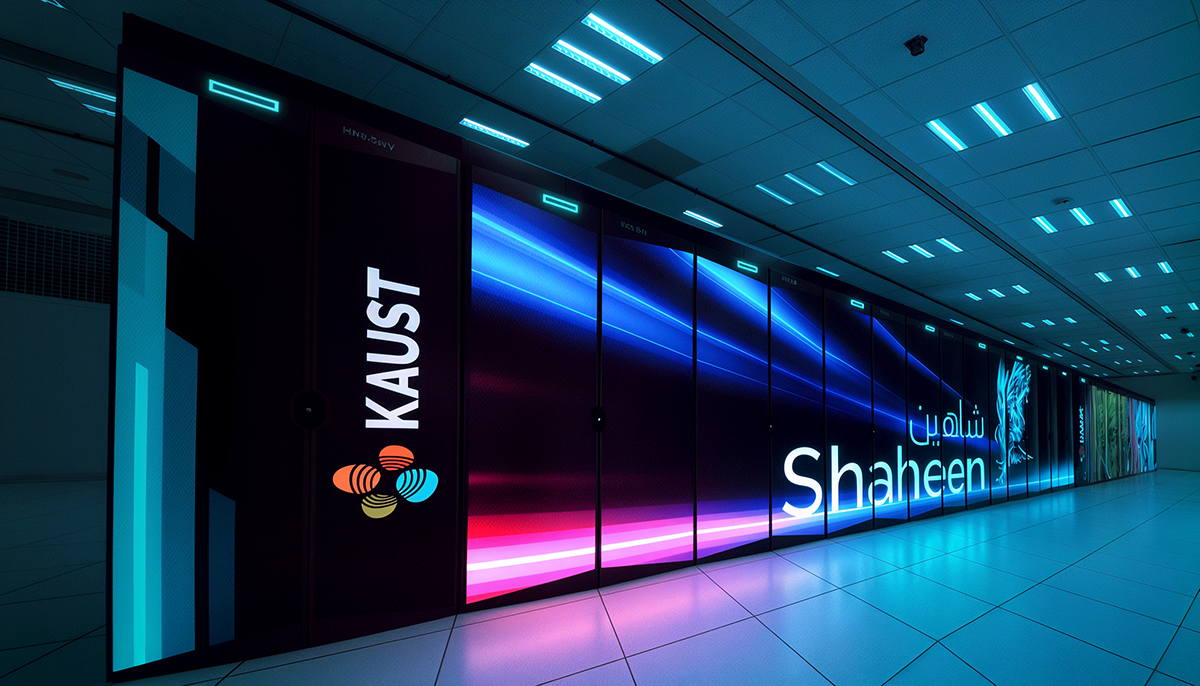Top-ranked Arab university unveils Middle East’s most powerful supercomputer

- Shaheen III will unlock unparalleled opportunities to deliver impact in Saudi Arabia
King Abdullah University of Science and Technology (KAUST) is now officially home to the most powerful supercomputer in the Middle East - Shaheen III an HPE-built system.
According to the latest TOP500 rankings, announced at the International Conference for High Performance Computing, Networking, Storage and Analysis (“SC25”) in St. Louis, Missouri, U.S., from November 16 to 21, 2025, Shaheen III has achieved a top position among the world’s most advanced supercomputers, ranking 1st in the Middle East and 18th globally.
Based on the direct liquid-cooled HPE Cray EX system, featuring 2,800 NVIDIA GH200 Grace Hopper Superchips, Shaheen III delivers more than three times the processing power of the CPU-based system that ranked among the world’s fastest at the time of its launch in 2023. KAUST completed the acceptance and ownership transfer of Shaheen III’s GPUs from HPE in October 2025, in full compliance with the export license conditions imposed by the U.S. Department of Commerce’s Bureau of Industry and Security (BIS).
This milestone reflects the Kingdom of Saudi Arabia’s growing capability to advance global scientific excellence. From early 2026, with the activation of the new GPU partition, Shaheen III will enable faculty members across KAUST to drive world-class research aligned with the Kingdom’s research, development and innovation priorities.
To name just a few examples, Shaheen III will power a new generation of Arabic-centric Small and Large Language Models (LLMs), specifically designed to reflect the linguistic nuances and cultural context of the Arab world.
It will also underpin the creation of a digital twin of the entire Arabian Peninsula, an integrated simulation environment that couples atmospheric, oceanic, and terrestrial processes. This initiative will deliver unprecedented insight into a broad range of regional climate dynamics, extreme events such as oil spill management, and maritime traffic optimization.
Beyond climate and data science, Shaheen III’s capabilities will transform remote sensing applications, from the automated monitoring of wildlife and natural reserves to developing cost-efficient, scalable tools to support policymakers in optimizing agriculture and water management, particularly for strategic crops such as dates and wheat.
In the energy domain, Shaheen III will anchor the development of a fully automated, 24/7 robotic chemistry laboratory—an AIChemist—dedicated to discovering new materials and optimizing chemical processes. In healthcare, Shaheen III will advance AI models for diagnosing rare diseases within the Saudi population, enhance medical imaging and support autism spectrum disorder research. These efforts combine artificial intelligence with wearable sensor technologies to deliver real-time, personalized healthcare, early diagnosis, and accelerated drug discovery.
Professor Sir Edward Byrne, President of KAUST, said: “With Shaheen III, Saudi Arabia stands at the forefront of computation-driven discoveries and impact. This remarkable asset will empower our researchers to advance world-class science and deliver innovative solutions that address the most pressing needs of the Kingdom and the world. I extend my sincere congratulations to the University teams and our partners whose dedication made this achievement possible.”
Trish Damkroger, Senior Vice President and General manager, HPC & AI Infrastructure Solutions at HPE said: “Shaheen III represents a significant milestone for the Middle East and will augment KAUST’s ongoing contributions to the global scientific research community. We are proud to bring our breakthrough engineering with HPE Cray supercomputing, along with our leadership expertise, to enable KAUST and its user community to push the boundaries of AI-driven science and innovation.”
Ian Buck, Vice President of Hyperscale and HPC, NVIDIA said: “Shaheen III represents a remarkable leap forward in scientific computing. With the NVIDIA GH200 platform, KAUST can deliver the efficiency and computational throughput required to advance scientific discovery across diverse domains — from climate and energy research to healthcare and materials science.”

